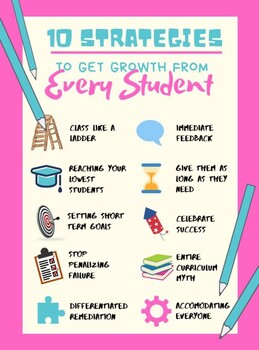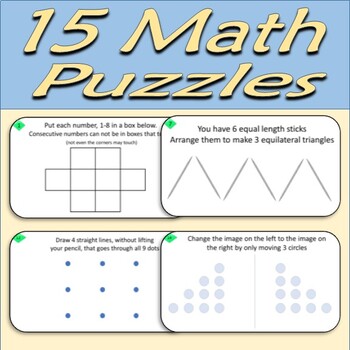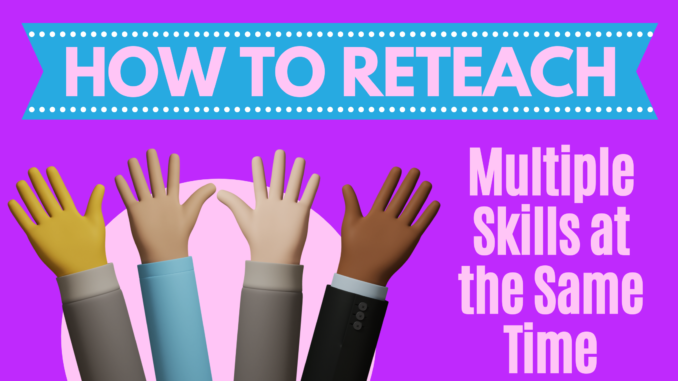
How can you reach every student in the room when they all need help developing different skills?
The problem with teaching math
Many math concepts build upon each other.
The issue many of our students have is that they haven’t learned one of the prerequisite skills required to do the grade-level work. So as concepts are building upon each other, some of your students are missing one (or more) of the necessary building blocks.
An example
To be able to add fractions, students have to know how to add fractions with common denominators, they have to be able to find common denominators, they have to understand how to convert and simplify fractions, which also means they have to know how to multiply and find common factors.
So if you’re trying to teach students how to add fractions with uncommon denominators, but Johnny still doesn’t know how to find the common denominators, he will struggle.
The Issue Compounds
Building on the example above, in a classroom of 20+ students, you will have students struggling to do the skill you are teaching for different reasons.
You will have some students who can’t find common denominators. You will also have some who can’t simplify fractions, and others who can’t convert fractions. You’ll also have a few students who don’t know how to add fractions with common denominators.
How can you help each student when they are all in different places?
How to reach them all
How can you serve all of your students when they’re all in different places?
Again, let’s build on the above illustration; a class trying to add fractions with uncommon denominators, but multiple students are struggling for various reasons – all lacking a prerequisite skill required to do the work, but many students are struggling with different skills.
The teacher feels that she is forced to make a tough decision.
Does she…
A – continue to teach the class how to add fractions with uncommon denominators
Or B – Remediate the class on the necessary prerequisite skills
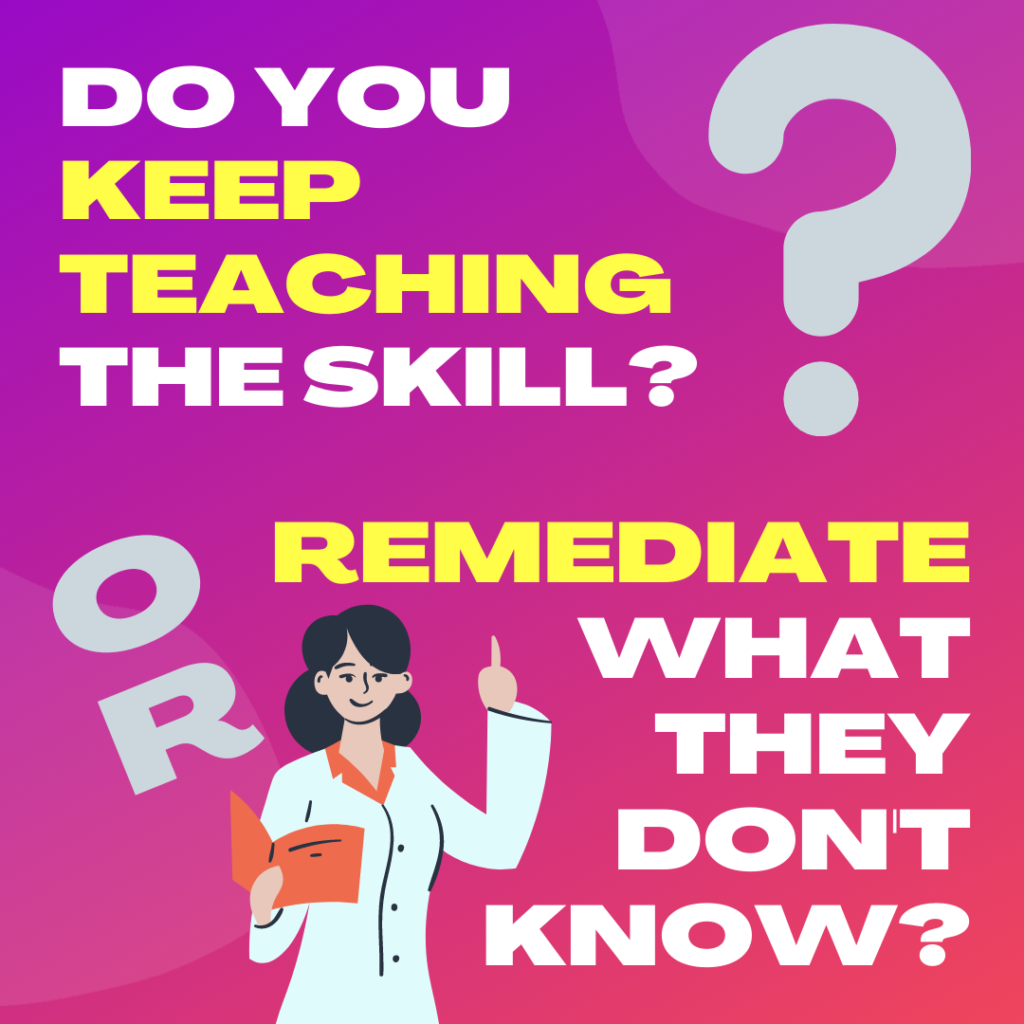
Why Option A won’t Work
The problem with proceeding with the grade level skill is that multiple students will not be able to find success. They do not have the skill set needed to do this work, and without remediation they will not master the grade level work.
As the class proceeds, they will fall further behind.
Furthermore, since they will never master this skill, they won’t be able to do more complex skills that require this skill as a prerequisite.
Adding fractions continues to appear throughout this class and in more advanced classes, so do a great number of skills you’re teaching in your class. By not remediating, you not only ensure that your students will fail your class, but they will struggle with math in their future classes – until someone finally gives them the remediation that they need.
Many Teachers Think it Should be on the Student to Do the Remediation Themselves
Afterall, this is the internet age. They have access to a kabillion YouTube channels that can teach them how to do the math. Plus dozens of other webpages that will give them free practice (some with immediate feedback).
But I would argue that if these students were able to do such investigation and problem solving, they would not be in this precarious position.
This also doesn’t consider their situation. They are probably not mature enough to figure out what skills they need to work on or how to find the resources needed to do the work. They are likely too busy or otherwise occupied to be able to invest this time. Many of our students are heavily involved in activities, family events, community programs, or are in impoverished conditions. Not to mention all of the homework they have from their other teachers.
Plus, they don’t want to!
Be honest. How often do you work on mastering something you have no interest in and find no value for? Especially when they don’t feel the reward (how often do you celebrate their success in a meaningful, impactful way that they feel and understand?)
I would argue that you, as their teacher, should be providing the remediation. You are the one with the ability to recognize what they need to develop, the knowledge to help them do so, an understanding of the material and resources available, and the ability to provide motivation (grades, extra credit, etc.) to spur them on.
The Struggle Increases
As you continue to move through the curriculum, you will have a growing number of students completely lost and left behind. What are they now supposed to do every day in your class?
Imagine that you were in a foreign language class – an advanced on – but you spoke absolutely none of the language. Students around you were putting together sentences, conjugating verbs, and having a dialogue with one another, while you struggled with the most basic vocabulary.
How difficult would this class be? How helpless and frustrated would you feel?
What would you do while the class was doing their work; something you had no chance of doing correctly? Would you daydream? Talk to a friend? Ask to go the bathroom? Try to get your phone out to amuse yourself.
Of course you would!
This is the plight for many of the students in your class. They feel that you are speaking a foreign language and they understand none of it! They don’t know what to do, so they get in trouble. By not remediating these students, you are not only setting them up for failure, you are also encouraging them to get in trouble and become a distraction to the rest of the class.
Why Option B Won’t Work
If you choose to remediate the class on account of these struggling students, you will not be able to push your stronger students through the amount of curriculum they need to get through to be appropriately challenged – and prepared for the next grade level.
While the whole class remediates on times tables, or common factors, or simplifying fractions – many students have already mastered these concepts. They are being punished, forced to do these basic skills again, when they don’t need to. They are bored. Frustrated. Feel that this is a waste of time and want to be challenged or pushed on.
Consider all the skills that need to be remediated
We listed several prerequisite skills for adding fractions. More complex skills (higher grade levels) have more prerequisite skills. Do you plan on remediating all of them? How long will that take?
How much remediation is required for mastery
If you are teaching your 7th grade class to convert fractions into decimals, a skill that requires division, you will likely find yourself frustrated with how many students can’t do the division (and how many don’t know their times tables).
Here’s something to consider: When do students learn long division?
Here’s something else to consider: How many long division problems have your students seen, and practiced in their academic career thus far… and yet, they still don’t know how to do it!
Students learn division and long division, usually, in fourth grade – almost three years earlier. They’ve practiced this skill dozens (if not hundreds) of times over these years. Yet they still haven’t mastered it!
HOW MANY REPETITIONS will you need to provide for them to master?
Please don’t make the mistake of thinking that your such a great teacher that you can teach your students, in one day, something their previous teachers could not do in two or three years!
No doubt, you’re a great teacher. And while learning does need a good teacher, it also requires multiple practice repetitions with immediate feedback. And if your students are struggling to master the skill, they likely need more practice (and more feedback) than most. Something previous teachers did not provide.
If you want your students to master these prerequisite skills and concepts, you need to provide your students with a lot of practice (and make sure to also offer feedback).
Which brings us back to our issue. How can you provide that remediation for all of your students on all of these skills? And, if you do, how can you do so without penalizing your students who don’t need the remediation (or don’t need ALL of it)?
What to Do?
If Option A – continue teaching the skill – won’t work, since many of your students don’t have the tools to do this work and will thus be left behind and are likely to get into trouble.
AND if Option B – remediating all the prerequisite skills – won’t work, since there are multiple skills that need remediation, and it takes a while to remediate each skill. And not all of your students need this remediation, so they too are bored and likely to get into trouble.
WHAT THEN SHOULD WE DO?
I propose that you offer remediation only to the students who need it, and only on the skills that they need remediation!
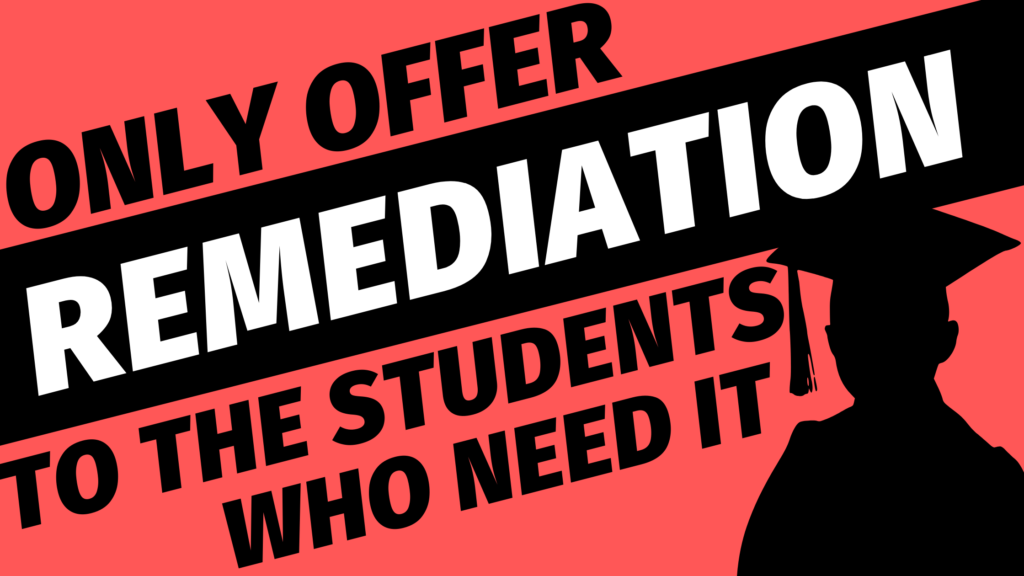
In our adding fractions example, you will have some students who need to work on converting fractions, but not all. So I propose you remediate those students on this skill and not the students who already know how to do it.
Those who know how to convert fractions, but don’t know how to add fractions with common denominators should only be remediated on that skill. In fact! I suggest you remediate them on that skill while you remediate the first group of students on the first skill.
And finally, the students who need no remediation should be able to work on the grade level skill (in our example, adding fractions).
The Benefits
By differentiating your remediation this way, you are able to meet every student where they are. So every student will have the opportunity to have meaningful growth. An added bonus is that each student will feel success, as they are actually achieving it.
As students find success and experience growth, their sentiments towards school, math, and you will increase. They will begin to enjoy learning since they are being challenged at the appropriate level and making gains.
Moreover, discipline issues will decrease since students are now engaged instead of left behind or held back.
BUT HOW
How do we differentiate our remediation to reach all of our students.
The best vehicle I have found is to build a learning station for each of the prerequisite skills being covered. Then diagnose your students to assess what skills they need remediation on, and stick them in the appropriate learning station.
By doing so, you will truly be using data to drive your instruction – and it becomes very apparent when a student masters a concept and progresses to the next skill, so you are able to celebrate their success.
There are several other things you need to do with your remediation (and inside your learning station) to help your students master the concept and find success. For example, you need to provide immediate feedback and give students as long as they need on the concept until they master it.
To learn more about these types of learning stations by clicking here.
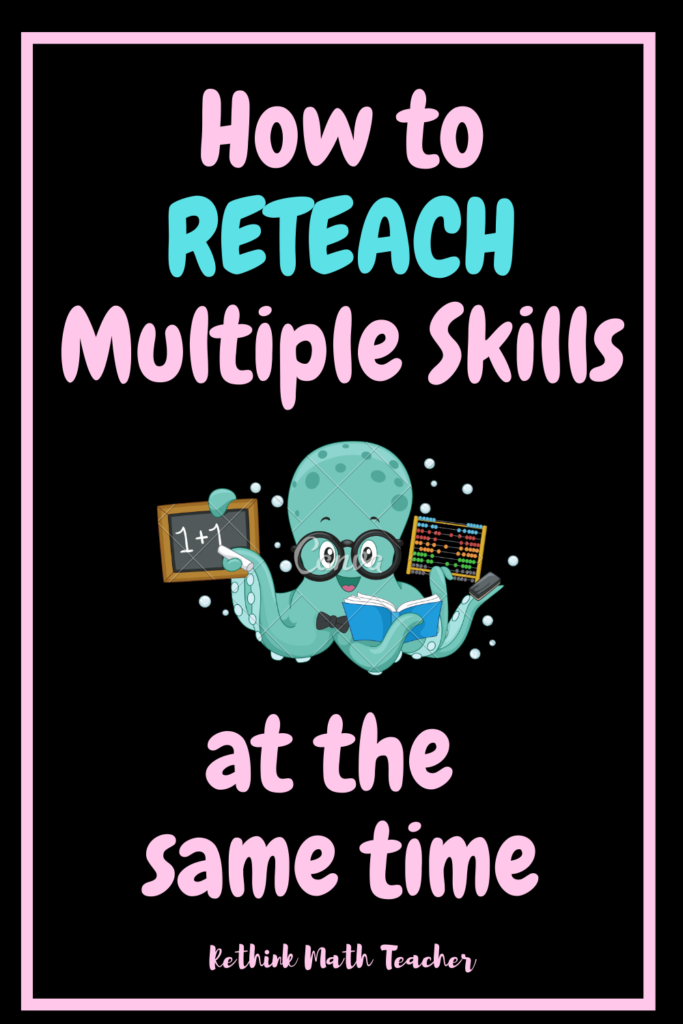
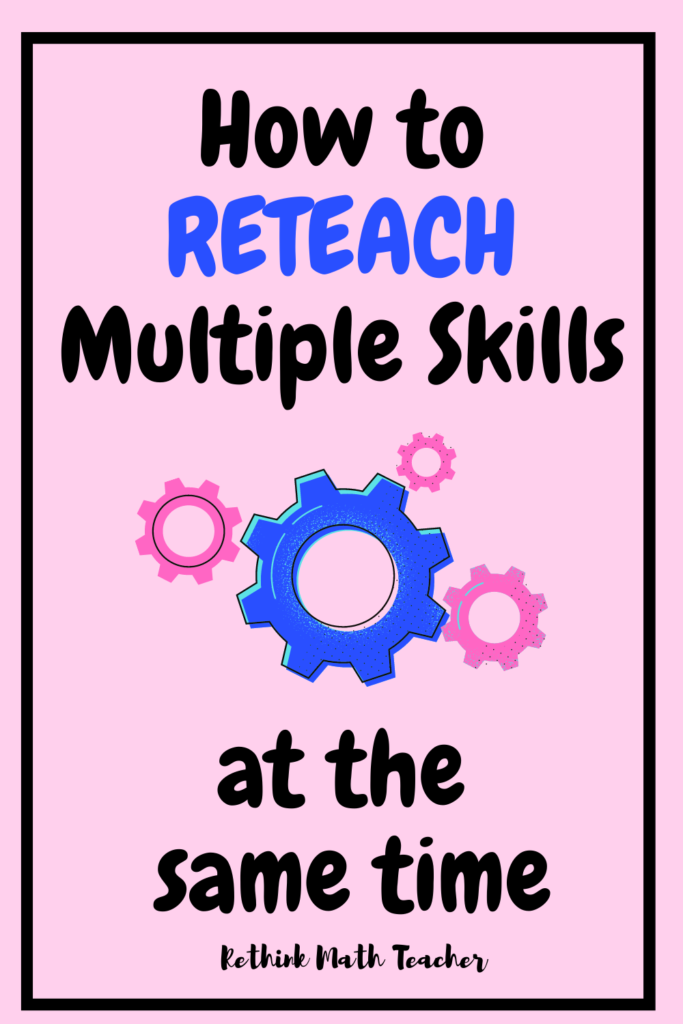
More Articles on Learning Stations
- Uncommon Teacher Challenge
- 7 Reasons to Differentiate your Instruction
- What is Differentiated Instruction
- Challenging Your Stronger Students While Reaching Your Weaker Ones
- How to Differentiate Instruction in Your Math Class
- Differentiated Remediation
- Plugging the Holes – Remediation that Works
- Why You Should Create Learning Stations




